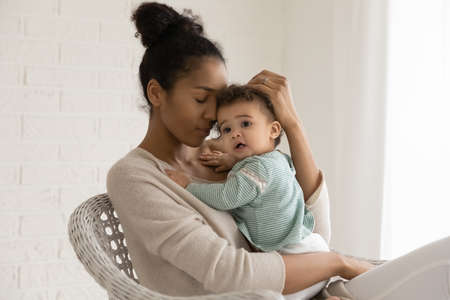Understanding the Importance of Vaccinations in the UK
For British parents, ensuring your child’s health and wellbeing is a top priority. Vaccinations play a vital role in protecting children from serious and potentially life-threatening diseases. In the United Kingdom, the National Health Service (NHS) provides a comprehensive childhood vaccination schedule, which has been carefully designed based on rigorous scientific evidence and public health needs unique to the UK. The schedule covers crucial vaccines such as MMR (measles, mumps, and rubella), DTaP/IPV/Hib/HepB (6-in-1 vaccine), rotavirus, pneumococcal conjugate vaccine (PCV), and meningitis vaccines, among others. By following this schedule, parents not only safeguard their own child but also contribute to community or ‘herd’ immunity, reducing the risk of outbreaks within schools and local communities. Widespread vaccination in the UK has led to dramatic reductions in diseases like measles, polio, and whooping cough, making these illnesses extremely rare. Understanding the public health benefits of vaccinations—including protection for vulnerable individuals who cannot be vaccinated—is key to recognising why timely immunisation is so strongly recommended by healthcare professionals across Britain.
2. Preparing Your Child Emotionally
Helping your child feel emotionally ready for vaccinations is an important step for British parents. Children of different ages have varying levels of understanding and anxiety, so tailoring your approach can make the experience more positive for everyone involved. Below is practical advice on discussing vaccinations with children at different developmental stages, considering common questions and cultural sensitivities in the UK.
How to Talk to Your Child About Vaccinations
| Age Group | Advice for Parents |
|---|---|
| Under 5 Years | Keep explanations simple and reassuring. Use familiar language such as “the nurse will give you a little medicine to keep you healthy.” Bring a favourite toy or comforter and offer plenty of praise before and after the appointment. |
| Primary School (5-11 Years) | Be honest but gentle about what will happen. Explain that it may hurt a little, like a pinch, but it will be over quickly. Allow them to ask questions and express feelings. Involve them in small choices, such as which arm to use. |
| Secondary School (12+ Years) | Offer clear, factual information about why vaccines are important for personal and public health. Address any worries about side effects honestly. Encourage open dialogue and respect their growing independence by involving them in decision-making where appropriate. |
Practical Tips for British Families
- Use resources from trusted sources like the NHS or Public Health England to answer questions accurately.
- If your child attends school in England, Scotland, Wales or Northern Ireland, mention that vaccination programmes are standard practice and most classmates will also receive them.
- Remind children that feeling nervous is normal and share stories about your own experiences if appropriate.
Example Phrases You Can Use
- “The nurse is helping to protect you from getting poorly.”
- “Most children at your school will have this done too.”
- “It might sting a bit, but it wont last long, and I’ll be right there with you.”
If Your Child Is Anxious
If your child shows signs of anxiety, consider practising deep breathing techniques together beforehand or planning a treat afterwards as something to look forward to. Remember that being calm and confident yourself helps set a reassuring tone for your child’s experience.

3. Tips for the Vaccination Appointment Day
What to Bring to the Appointment
Before heading to your child’s vaccination appointment at an NHS clinic or GP surgery, ensure you have all necessary documents. Bring your child’s Personal Child Health Record (commonly called the “red book”), which is used throughout the UK to track vaccinations and growth milestones. If your child takes regular medication or has any allergies, bring a list of these as well. It’s also sensible to carry a favourite toy or comfort item, which can help soothe your child during the process.
How to Dress Your Child
Choose clothing that allows easy access to your child’s upper arm or thigh, depending on their age and the vaccine site. Short-sleeved tops or loose-fitting clothes are ideal, helping nurses administer the injection quickly and with minimal fuss. In colder weather, layer up with cardigans or jumpers that are easy to remove.
Managing the Process at NHS Clinics or GP Surgeries
Arrive a few minutes early to allow your child time to settle in and get used to the environment. Calmly explain what will happen in simple terms appropriate for their age, emphasising that it will be quick and that you’ll be with them throughout. At many British clinics, staff are experienced in supporting nervous children—do let them know if your child is particularly anxious so they can offer extra reassurance. Stay positive and praise your child before, during, and after the appointment. After the vaccination, follow any instructions given by the nurse, such as waiting briefly before leaving to monitor for immediate reactions.
4. Managing Your Child’s Anxiety and Discomfort
It is entirely natural for children to feel anxious about vaccinations, but as a parent, you can play a crucial role in helping them manage their fears and discomfort. By using child-friendly approaches and UK-recommended techniques, you can make the experience more positive and less stressful for both of you.
Techniques Before the Vaccination
- Honest Communication: Explain what will happen in simple, age-appropriate language. Avoid saying “it won’t hurt”—instead, acknowledge that it might be uncomfortable but reassure them it will be over quickly.
- Distraction Tools: Bring a favourite toy, book, or electronic device to keep your child occupied while waiting.
- Prepare with Play: Role-play the visit at home using dolls or teddies so your child knows what to expect.
During the Vaccination
| Technique | Description | UK Recommendation |
|---|---|---|
| Comfort Positioning | Hold your child on your lap or allow them to sit close to you during the injection for reassurance. | Supported by NHS guidelines |
| Breathing Exercises | Encourage slow, deep breaths or blowing bubbles to help calm nerves and reduce pain perception. | NHS-endorsed for anxiety reduction |
| Distraction Techniques | Use singing, storytelling, or engaging videos to divert attention from the procedure. | Recommended by UK paediatricians |
| Numbing Cream (if suitable) | An over-the-counter numbing cream may be applied beforehand (seek advice from your GP or pharmacist). | A recognised option in UK practices |
After the Vaccination
- Praise and Reassurance: Congratulate your child on their bravery and offer plenty of cuddles or small rewards like stickers.
- Pain Relief: If recommended by your healthcare professional, consider giving paracetamol for mild discomfort or fever post-vaccination.
- Monitor for Side Effects: Keep an eye out for common reactions such as redness, swelling, or mild fever, and know when to seek medical advice if needed.
When to Seek Help?
If your child experiences persistent crying, high fever, or unusual symptoms after vaccination, contact your GP or NHS 111 for further guidance. Remember, most side effects are mild and temporary, but prompt action is always best if you have concerns.
5. Aftercare: Monitoring and Supporting Your Child
Once your child has received their vaccination, it is important to provide attentive aftercare. Most children experience only mild side effects, such as a sore arm, mild fever, or general tiredness. According to NHS guidelines, these symptoms are usually short-lived and resolve without intervention. However, it’s helpful to monitor your child for the next 24-48 hours.
What to Expect Post-Vaccination
Your child may feel a bit under the weather after their jab. Common reactions include mild swelling or redness at the injection site, slight fever, and occasional irritability or fussiness in younger children. These effects are normal signs that the body is building protection. You can help by encouraging rest and offering plenty of fluids.
Managing Mild Side Effects
If your child develops a temperature, you may use paracetamol (as advised for their age group) to ease discomfort. Applying a cool, damp cloth to the injection area can also relieve soreness. Avoid giving aspirin to children under 16 unless specifically prescribed by your GP.
When to Seek Medical Advice
While serious side effects are rare, it’s crucial to be aware of warning signs. Contact your GP or ring NHS 111 if your child experiences difficulty breathing, persistent high fever, widespread rash, or becomes unusually drowsy. Trust your instincts—if you are concerned about any reaction, do not hesitate to seek professional guidance.
By following NHS recommendations and staying observant after your child’s vaccination, you can ensure they remain comfortable and safe during their recovery period. This proactive approach supports both their immediate wellbeing and long-term health.
6. Useful NHS Resources and Support
Ensuring that you have access to reliable information and support can make the vaccination process smoother for both you and your child. The National Health Service (NHS) provides a range of reputable resources tailored specifically for British parents.
NHS Vaccinations Guide
The official NHS Vaccinations website offers comprehensive information about childhood vaccines, including the routine immunisation schedule, what to expect at each appointment, and answers to frequently asked questions. This is an excellent starting point for any concerns or queries you may have.
NHS 111 Helpline
If you need immediate advice regarding vaccinations, side effects, or your child’s reaction post-vaccination, you can call the free NHS 111 helpline. The service is available 24 hours a day and staffed by trained professionals who can provide guidance or direct you to appropriate care services if necessary.
GP Practices and Local Health Visitors
Your local GP surgery remains a key resource. Practice nurses and GPs are equipped to answer specific questions about your child’s vaccine schedule and address any worries. Additionally, health visitors offer guidance on immunisations as part of their wider support for families with young children.
Community Support Groups
Many communities across the UK have parent support groups—both online and in-person—where families share experiences and tips on preparing children for vaccinations. Organisations such as NCT (National Childbirth Trust) often provide forums and workshops that include discussions on childhood immunisations.
Trusted Online Information
The NHS website remains the gold standard for health information in Britain, but additional trustworthy sources include:
By turning to these reliable resources and networks, British parents can confidently navigate the vaccination journey, ensuring their children are protected while feeling supported every step of the way.

